So, Scotland is on the rise again. Unfortunately, this is in respect of Covid-19: of the four UK nations, it currently has the highest R Number (1.25 as of the 19th May), versus Northern Ireland’s 1.05, England’s 1.02 and Wales’s 1.04. The UK as a whole is sitting at 1.05.
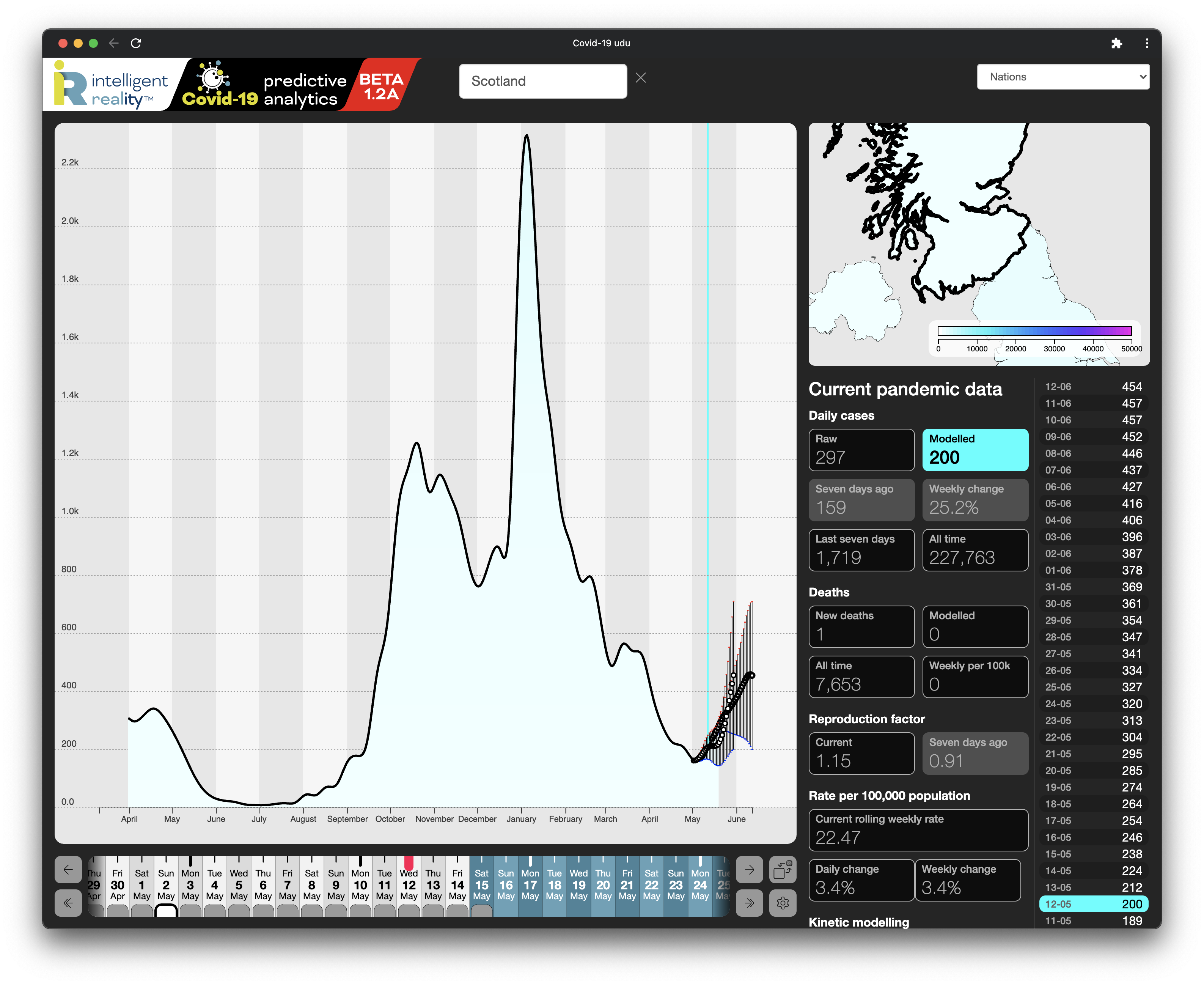
We are however still faced with the situation of governments (in this case, the Scottish Government) making decisions late, and based on data that’s a week or more old, and not apparently using any form of validated forecasting to inform timely decision making.
In case you’re new to our blog, we’ve developed a Covid-19 targeted version of our emergent forecasting system and, in this case, have been forecasting the rise in cases on all but four days since the beginning of May.
Disclaimer: we’re not calling out the Scottish Government here over the governments of other parts of the UK: it’s just that this is our patch and it’s easier to compare the 32 Scottish Local Authorities than the 214 for the whole UK. In our more cynical moments, we think about creating a ‘Political Wishful Thinking vs Actual Data’ index, but it’s a league table that would probably show little variation over time.
Our R number forecast was spot on for the kick at the end of April from around the 15th April and was getting to grips with May’s rise from the 22nd April.
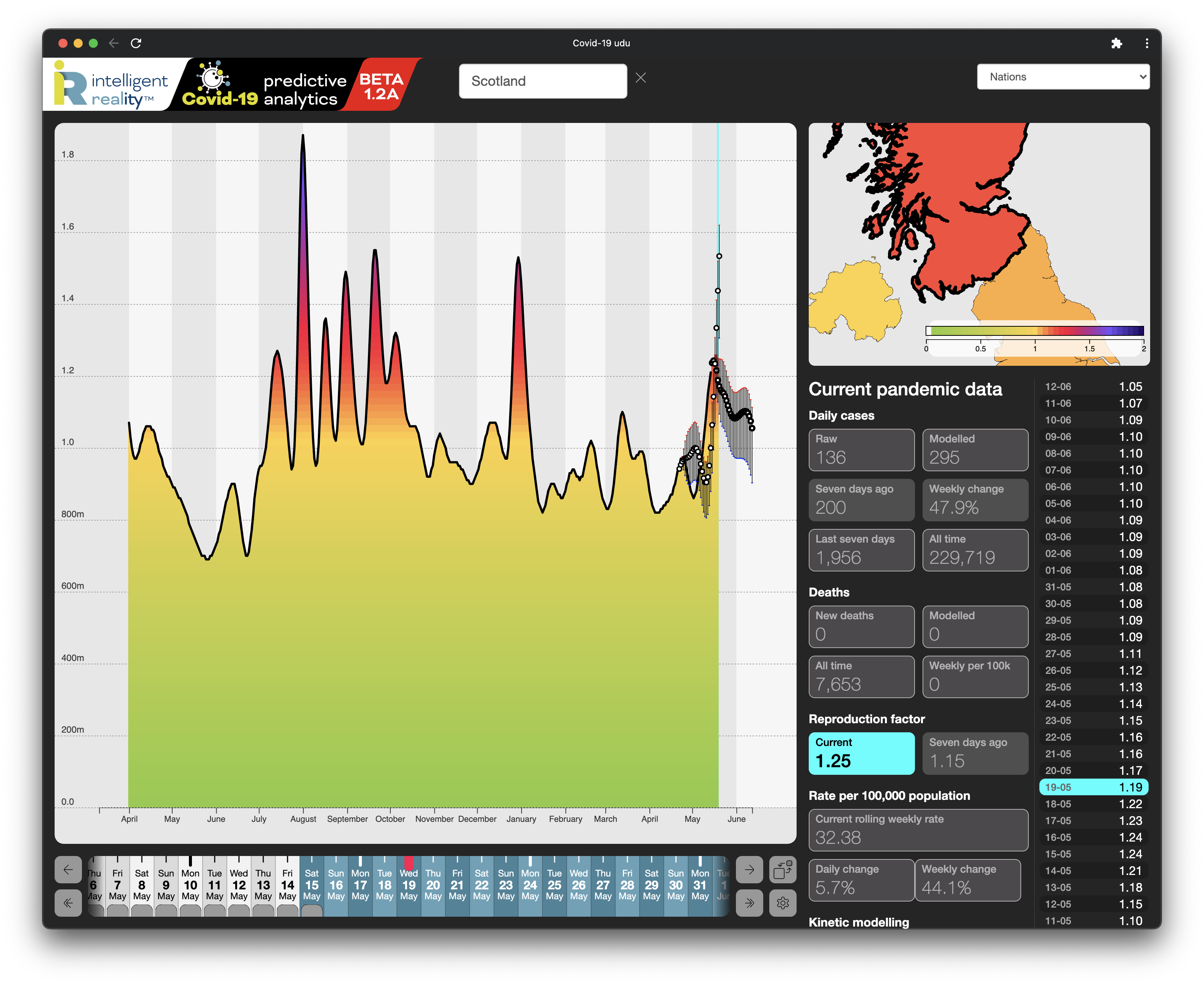
Enough though of our bleating about the failure of government to adopt modern best practice in their analyses. What do we think is now going to happen?
Forecasting
Firstly, which local authority areas do we think are of cause for concern from now (21 May), and when did our Intelligent Reality platform tell us that?
| Local Authority | Peak during forecasting Period | Forecast Case Numbers @ 12 June | R Number forecast @ 12 june | IR Forecast case no rise from |
| Glasgow | Rise to 1 June, peaking at 200/day | 193 | 0.99 | 2 May |
| Midlothian | Continuing rise | 81 | 1.01 | 11 May |
| E Renfrewshire | Continuing rise | 23 | 1.11 | 29 April |
| E Dunbartonshire | Continuing rise | 19 | 1.29 | 11 May |
| Renfrewshire | Continuing rise | 18 | 1.21 | 13 May |
| South Lanarkshire | Continuing rise | 11 | 1.2 | 11 May |
| Stirling | 4/day until 1 June | 4 | 1.13 | 20 May |
| Moray | 13/day, 8-10 May | 3 | 1.12 | 7 April |
It’s worth noting that R numbers are, at low daily case rates, highly variable and are not, on their own, good indicators. The concern is that most infectivity indicators remain above the growth threshold through early June, including at the national level.
Pandemic Force
The more important metric is the force of the pandemic, which, whilst it is currently reassuringly low for most areas, is on a notable uptick in Glasgow, a lesser inflection in Midlothian, and a significant drop in Moray. This we regard as the best compound indicator of changes in the dynamic of the pandemic.
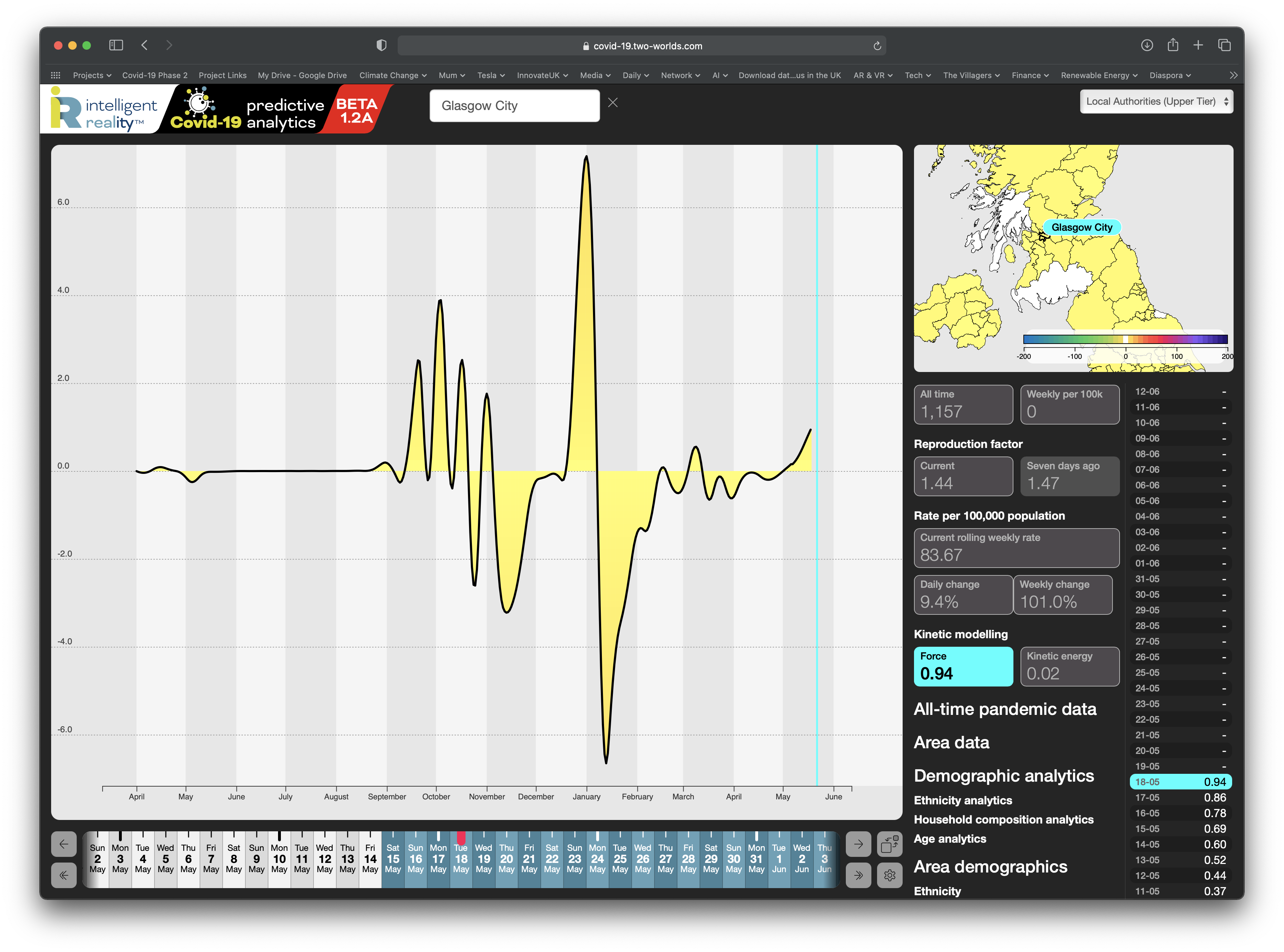
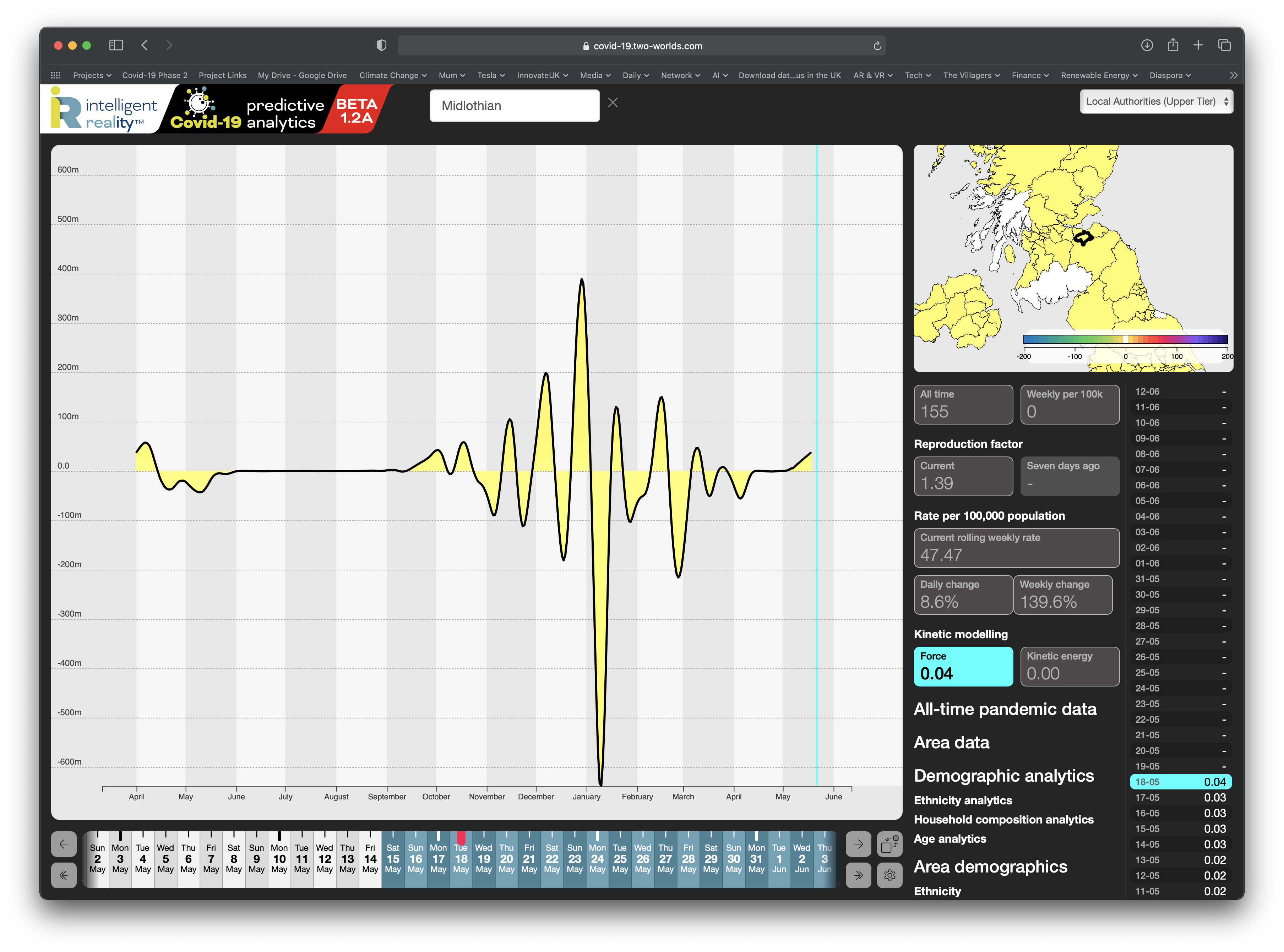
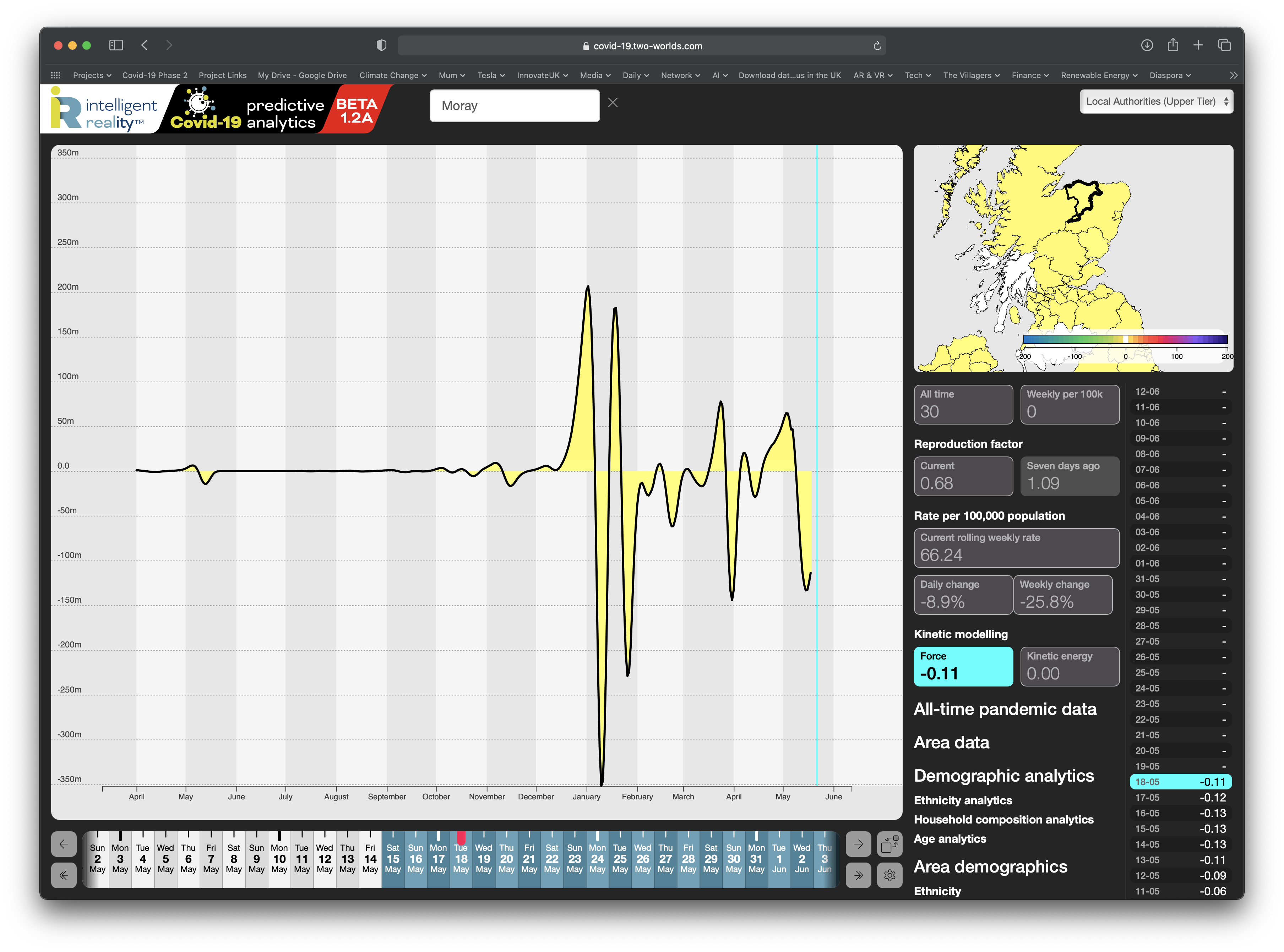
Forecasts in Hindsight
Looking below at our forecasts for case numbers, you’ll see here that our worst case forecast (Renfrewshire) still gave more than a week’s warning of the impending rise in cases and the best (Moray) nearly a month. Our forecast was also accurately predicting the peak in cases on Moray around 10 May from 2 May. We’ve derived these numbers from our hindcasting system, which compares our initial forecasts with what subsequently transpired.
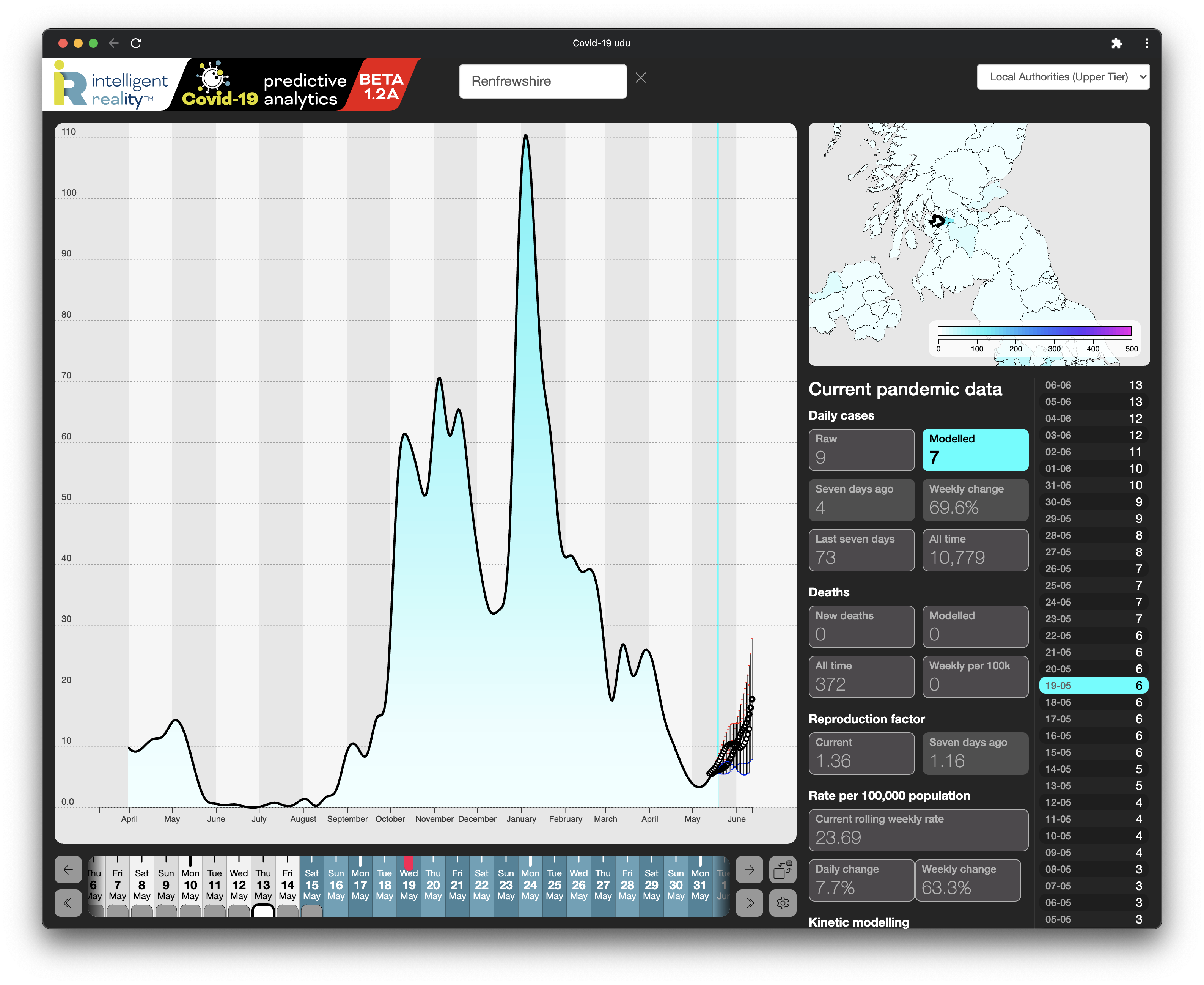
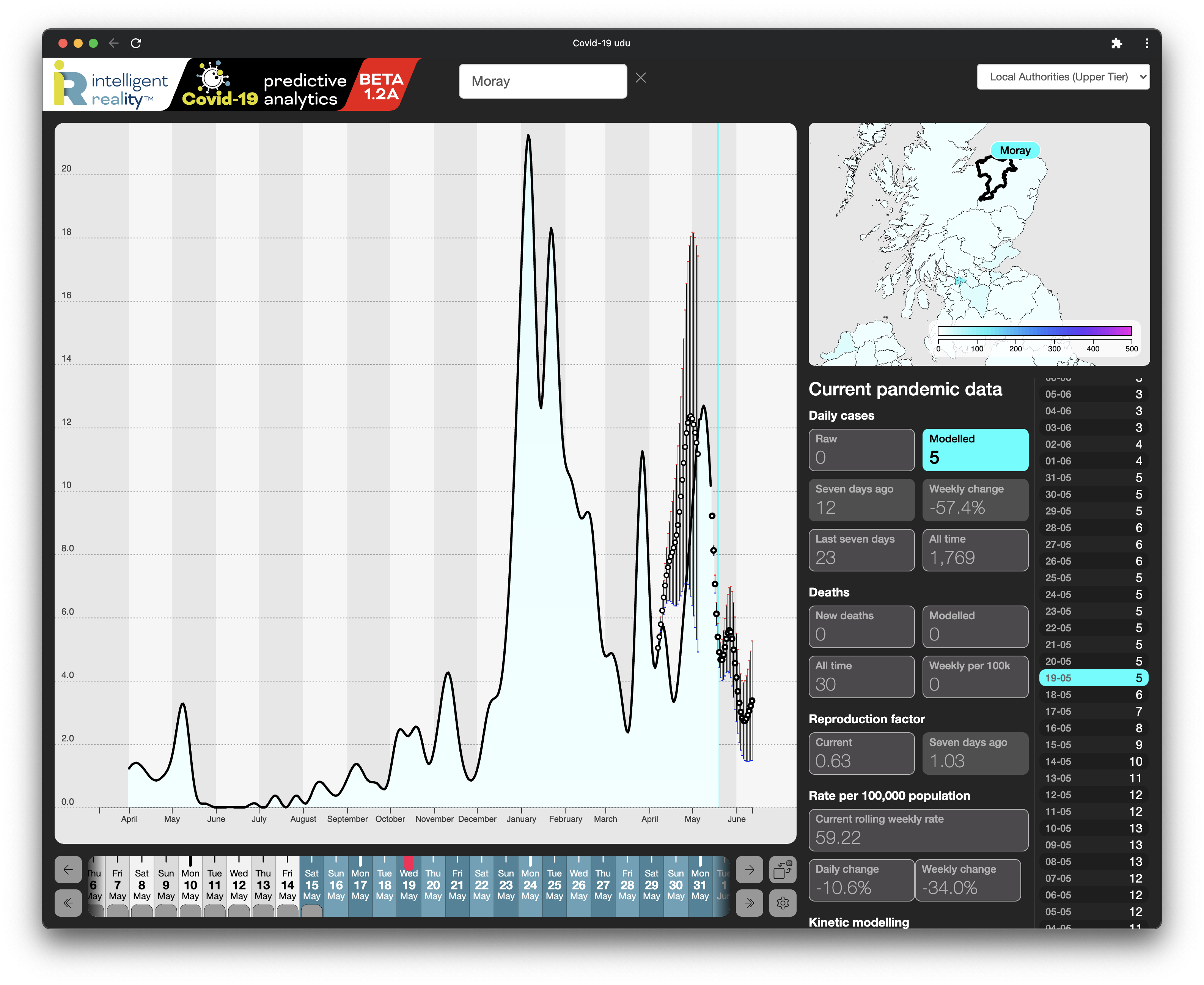
Still, forecasts are just that and, like weather forecasts, are less reliable the further out you go. But our results do suggest, and have done so for at least six months, that we are producing actionable forecasting and near-real time updates for key indicators of the pandemic.
Across the UK, the pattern appears to be that rising case numbers are still largely restricted to particular local authorities and that the overall national picture remains healthy. The trend however is resolutely, albeit rather than dramatically, upwards, in the absence of changes to policy, and the fact that all national R numbers are now above one is very definitely cause for concern.
Our focus now (apart from trying to persuade governments that machine learning approaches have exactly this sort of validity and can enable them to make earlier and finer-grained decisions) is on correlating demographic and behavioural factors with both the pandemic itself and with changes in public policy. That should prove very interesting for the data and policy geeks amongst us, so more of that in future updates.

One thought on “Scotland Rising”